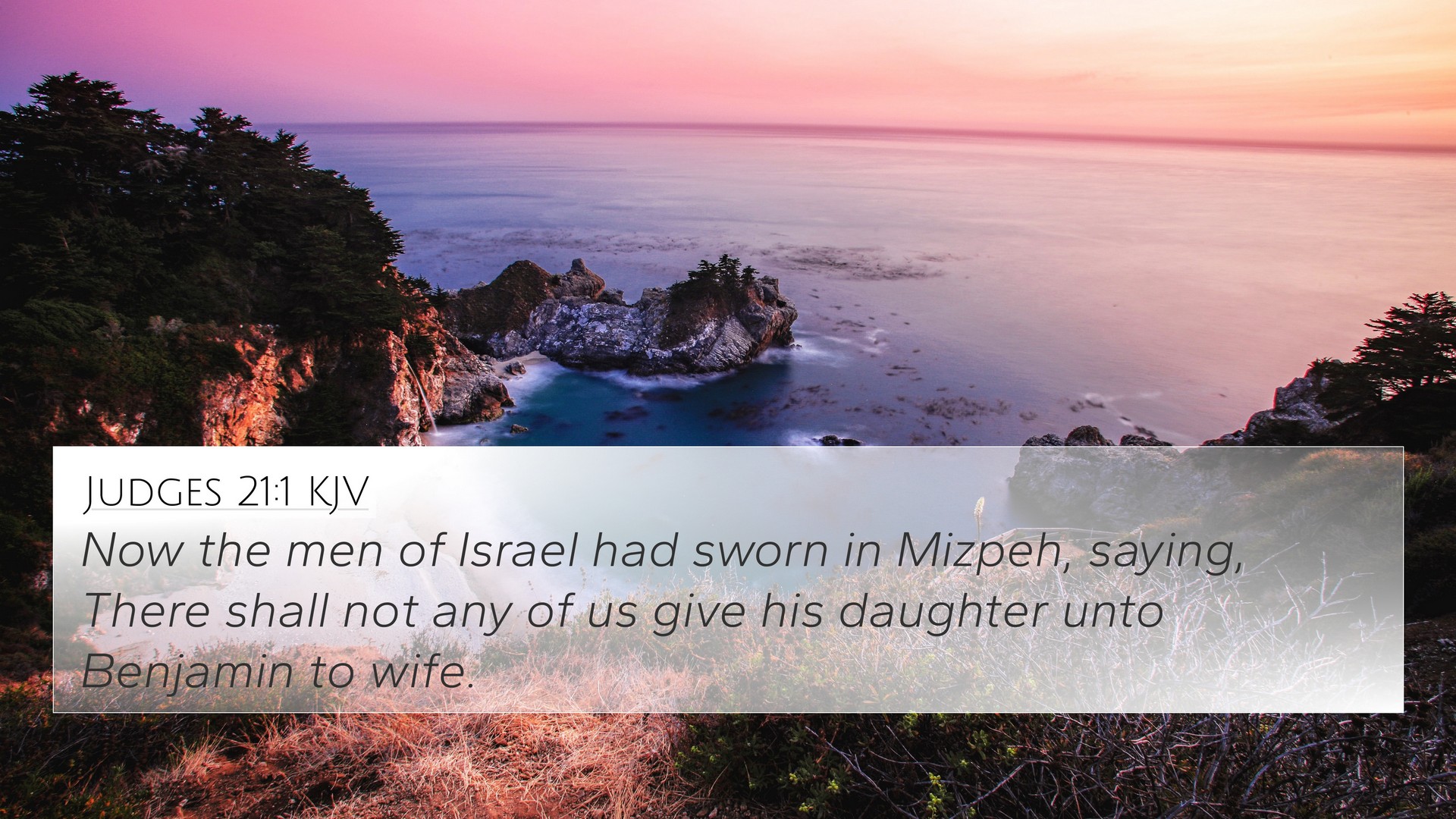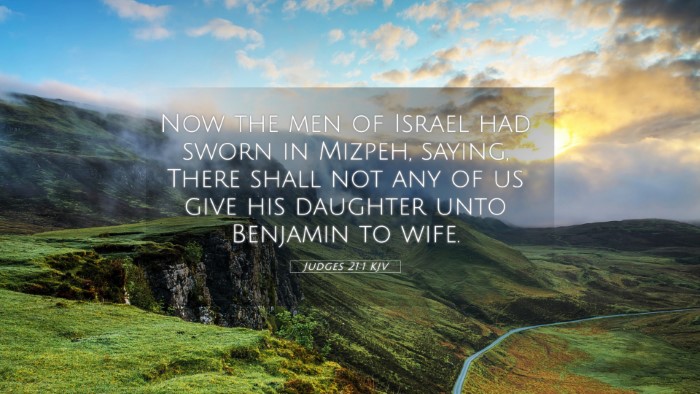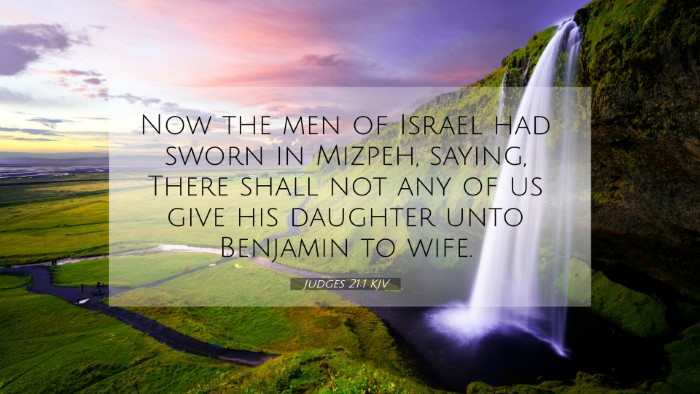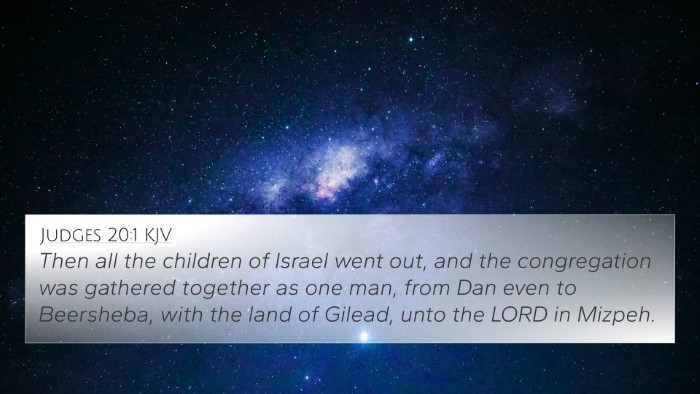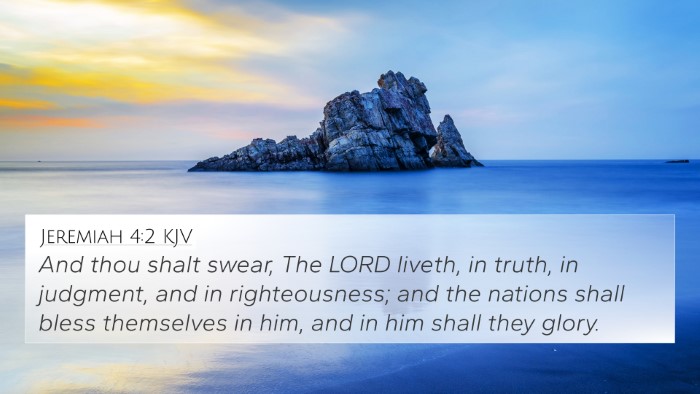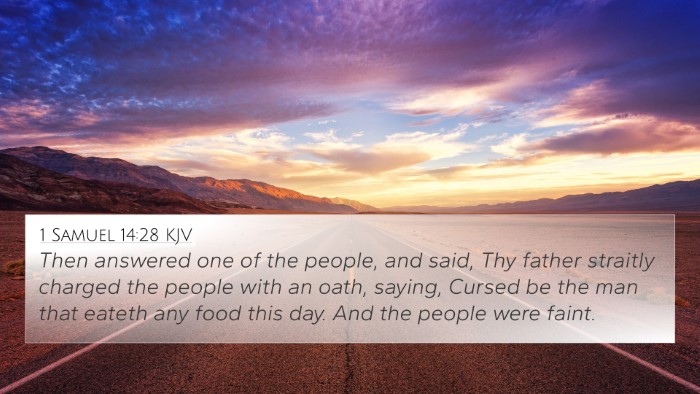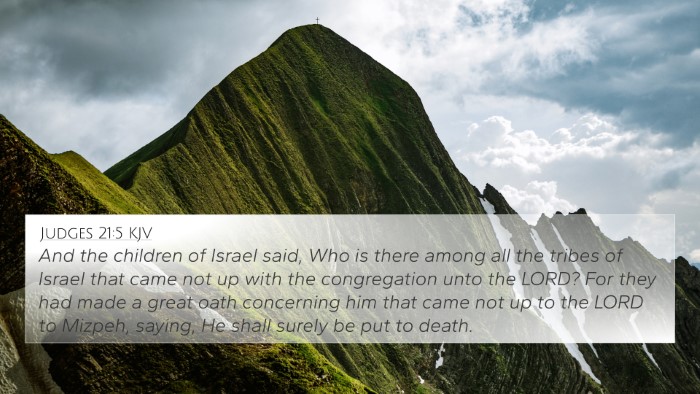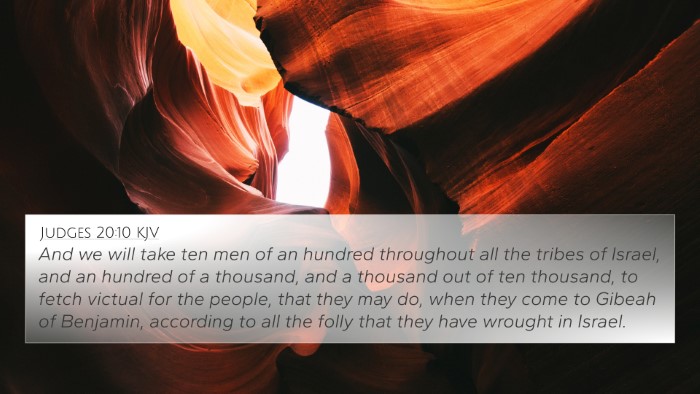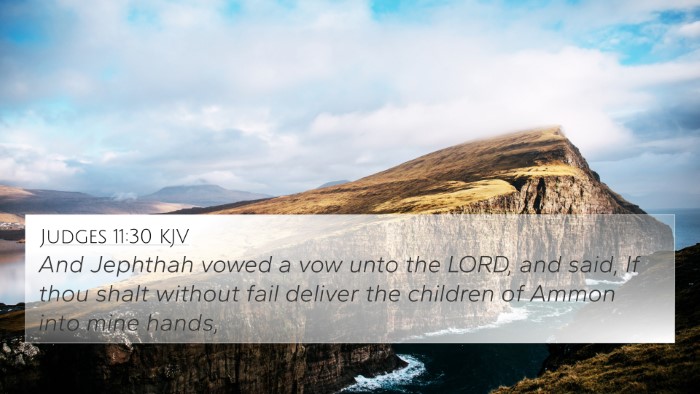Understanding Judges 21:1
Judges 21:1 states: "Now the men of Israel had sworn in Mizpah, saying, 'None of us shall give his daughter to Benjamin as a wife.'" This verse captures a moment of deep commitment and conflict within the Israelite community following the events of the civil strife against the tribe of Benjamin.
Overview and Context
This verse occurs at the conclusion of the book of Judges, where the Israelites are devastated after a war with the tribe of Benjamin and are facing the repercussions of their oaths. It highlights their sense of unity and the precarious situation they find themselves in, grappling with their vows and the dire need to ensure the survival of the tribe of Benjamin.
Key Themes
- The Consequences of Vows: The Israelites' oath emphasizes the seriousness of commitments made in faith and community.
- Conflict within Unity: Despite their unity against a common enemy, this situation exposes internal conflicts within the tribe of Israel.
- Divine Justice vs. Human Action: The tension between human promises and the unfolding of God's plan is evident in the narrative.
Commentary Insights
Drawing on the insights from Matthew Henry, Adam Clarke, and Albert Barnes, we can see deeper interpretations of Judges 21:1.
Matthew Henry's Commentary
Henry highlights that the oath made at Mizpah illustrates the gravity of their decisions and the fragility of their alliances. The vow not to give their daughters to the Benjamites showcases a resolve formed amidst turmoil, yet it also signifies a misguided step that would lead to further moral dilemmas.
Albert Barnes' Commentary
Barnes remarks on the implications of the covenant taken by the Israelites, noting that it shows the depth of their loyalty and the extreme measures they were willing to enforce. This decision encapsulates the theme of retribution and the dire consequences that can arise when one aligns too closely with violent responses.
Adam Clarke's Commentary
Clarke emphasizes the emotional weight of the situation, pointing towards the implications for the women of Israel and the future of the tribe of Benjamin. He suggests that this moment acts as a significant pivot in the narrative, marking both tragedy and a call for reconciliation.
Cross-References to Consider
Understanding Judges 21:1 is enriched through its connections to other passages in the Bible:
- 1 Samuel 14:24: Another pivotal moment of Israelite vows that led to unintended consequences.
- Deuteronomy 7:3-4: God’s directive regarding marrying with neighboring nations, which reflects similar decision-making processes.
- Judges 11:30-31: Jephthah’s vow and the consequences that follow show the weight of dangerous promises.
- Genesis 34:14: The story of Dinah highlights themes of intermarriage and the resulting tensions.
- 1 Corinthians 7:39: Discussions about marriage contextually contrast the values of the Israelites.
- Matthew 5:33-37: Jesus’ teaching on vows points to the importance of integrity in promises.
- Philippians 2:2-4: Unity within community may draw parallels to the Israelites’ plight.
Thematic Connections
The overarching themes found in Judges 21:1 lead to a broader understanding of biblical concepts such as unity, the weight of promises, and the consequences of decisions made in desperation. This creates an inter-Biblical dialogue that speaks to human behavior and divine expectations.
Conclusion
Judges 21:1 serves as a poignant reminder of the balance between human decisions and divine foresight. Through careful study and cross-referencing with related scriptures, one can appreciate the complexity of the narrative and the lessons embedded within.
Tools for Further Study
For those interested in deeper analysis and connections, various tools for cross-referencing can enhance understanding:
- Bible Concordance: Helps to find words and themes across scripture.
- Bible Cross-Reference Guide: A resource for finding links between verses.
- Cross-Reference Bible Study: Techniques to navigate biblical interconnections.
- Bible Reference Resources: Comprehensive materials for in-depth studies.
